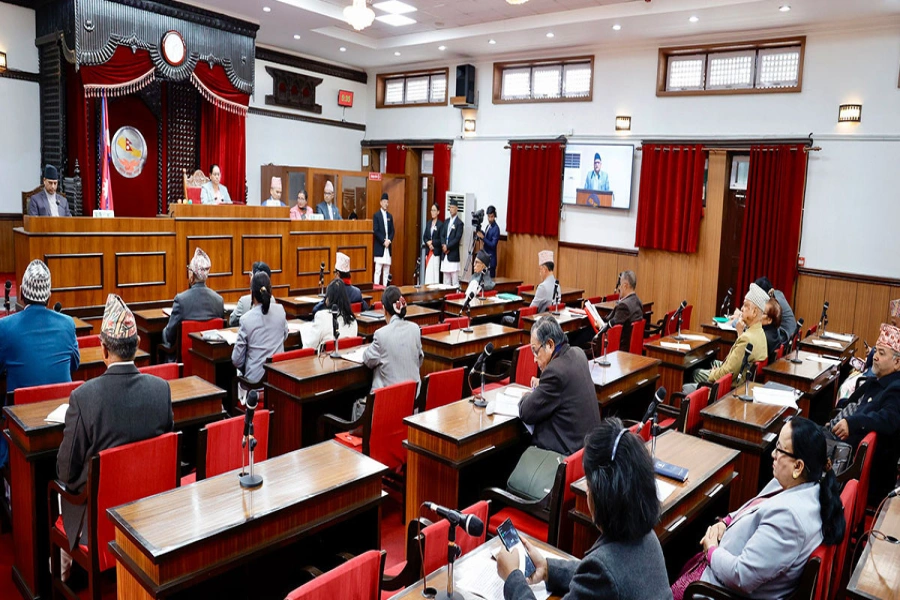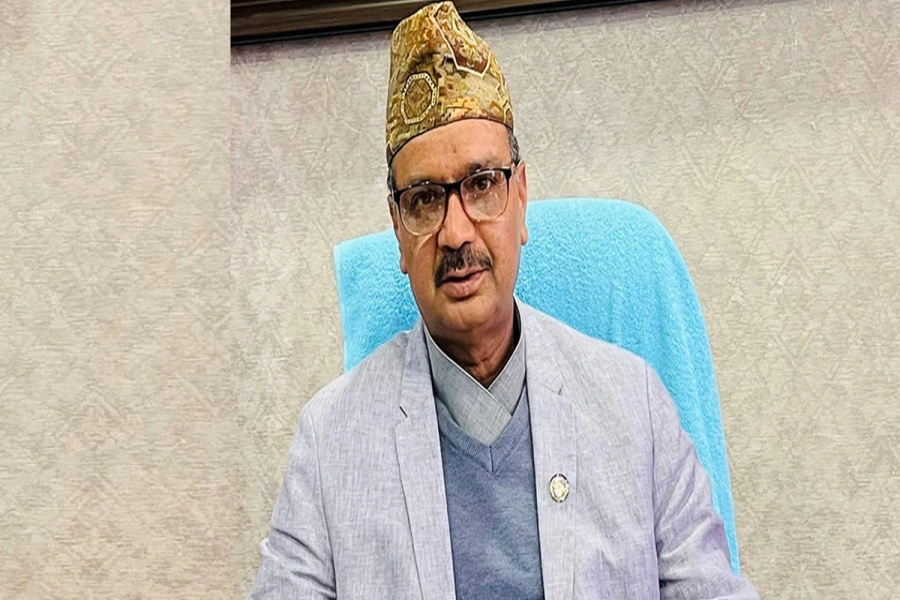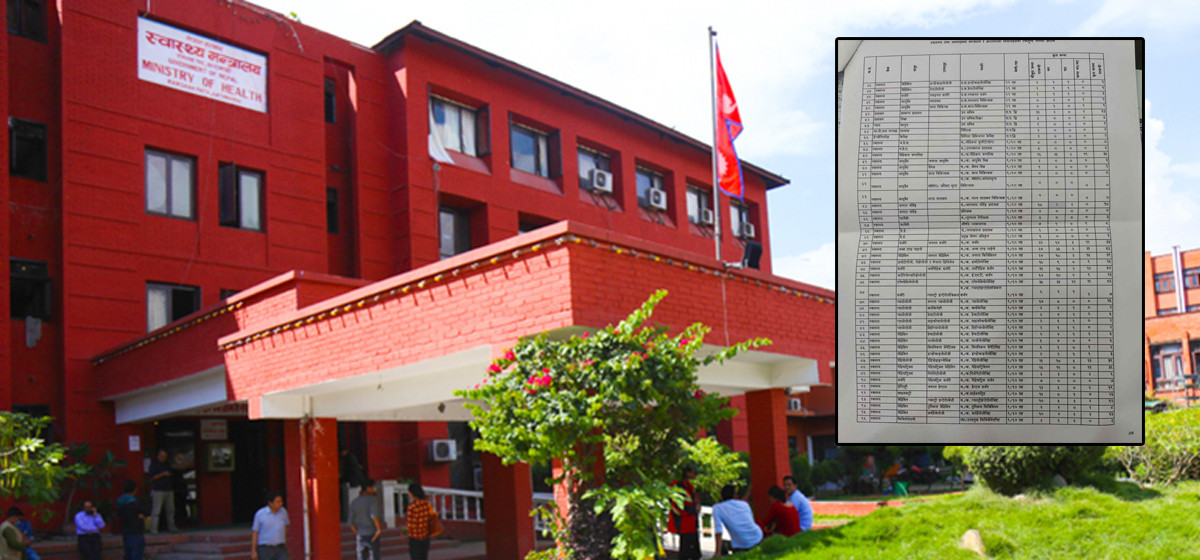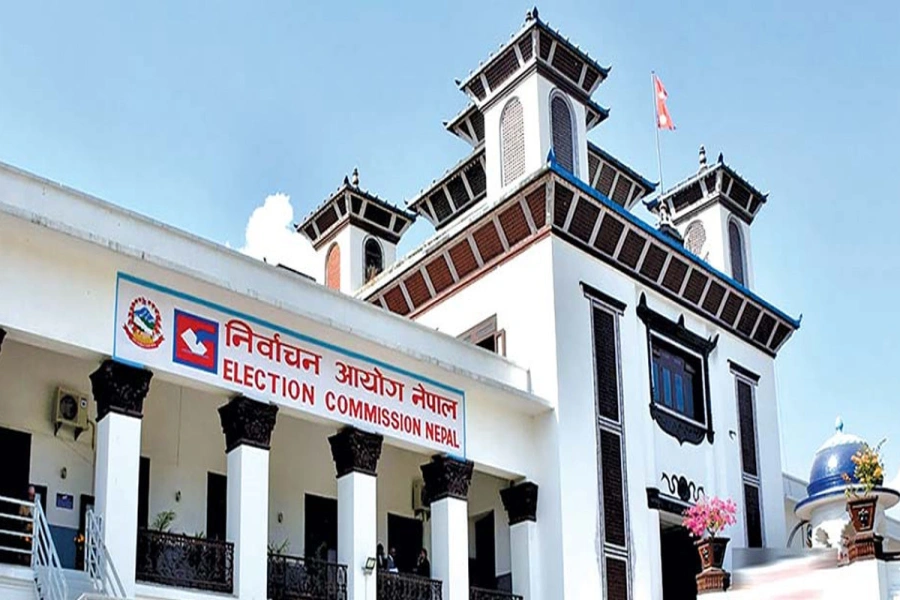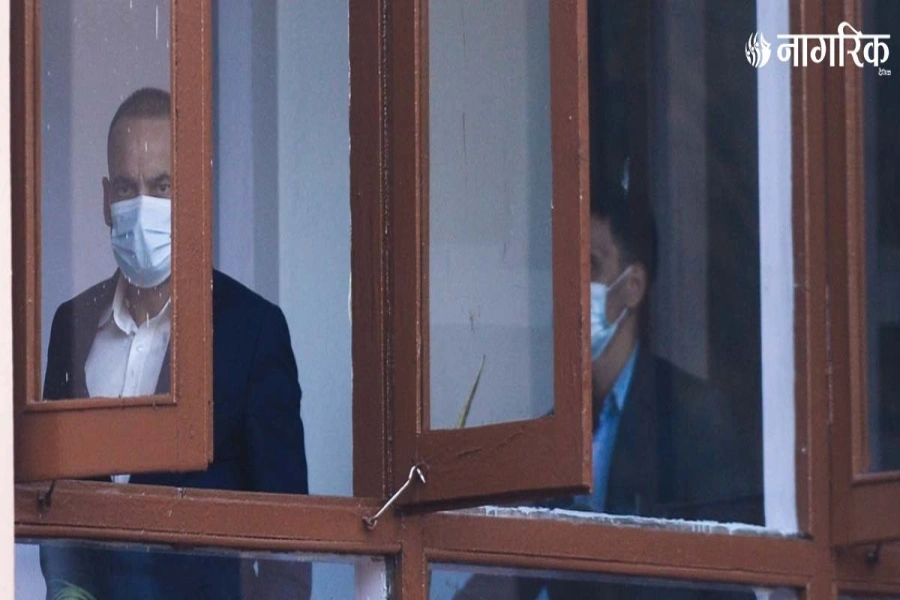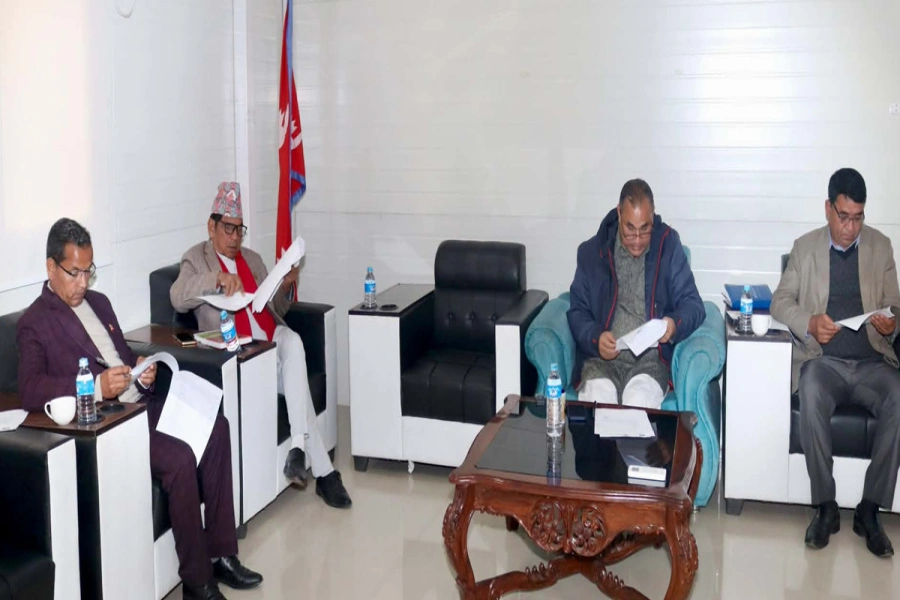From economic reform advisory commission to sovereign credit rating
KATHMANDU, Oct 19: The Ministry of Finance has outlined key measures implemented within the first three months of the formation of the new government. These include establishing a high-level economic reform advisory commission to recommend ways to boost the economy, executing the internal revenue mobilization strategy, completing preparations for the country’s credit rating, and submitting a related bill to the federal parliament.
Mahesh Bhattarai, spokesperson for the Ministry of Finance, acknowledged improvements amid economic challenges compared to previous conditions. He said that the private sector’s confidence has increased within the three-month period. Compared to the same period in the last fiscal year, capital expenditure and revenue collection have increased, interest rates have declined, private sector credit flow has expanded, the capital market is more active, foreign exchange reserves have grown, and remittances have surged.
Capital expenditure increased by 65 percent, while revenue collection rose by 13 percent compared to the same period last year. Additionally, foreign currency reserves reached an all-time high of Rs 2.152 trillion, remittances increased by 15 percent, and average interest rate dropped to 6.151 percent.
Two months after the formation of the new government, international organizations like the World Bank, Asian Development Bank, and IMF reported improvements in Nepal's economy.
The new government was formed under the leadership of CPN-UML Chairman KP Sharma Oli on July 14.
Important activities review period published by the Ministry of Finance are as follows:
- The government has made budget implementation more effective by issuing 73 points of guidelines.
- The government formulated the budget implementation action plan to make this year's budget implementation more effective. This has helped bring significant improvement in current, capital and overall expenses.
Finance ministry unveils 100-day action plan, announces formati...

- The government has formed a high-level economic reform suggestion commission and started the study to improve the overall economy of the country.
- The government has formed and deployed central rapid response teams and deployed to control revenue leakage.
- Nepal's sovereign credit rating process is currently awaiting a report from an international independent expert organization.
- The government has drafted New Insurance Guidelines, 2081 and submitted them to the Cabinet.
- The government has submitted regulations for SMEs to issue securities to the Cabinet.
-The government has approved and implemented the Domestic Revenue Mobilization Strategy 2081.
- The government has prepared and implemented a strategy to make the customs valuation based on actual transaction value.
- The government has drafted the Customs Tariff Guidelines, 2081 and submitted them to the Cabinet. This will further simplify the customs process.
- The government has formulated a policy related to credit and investment in public institutions and submitted it to the Cabinet.
- The government has prepared Internal loan issuance and implemented management procedures.
- The government has submitted the amendment bill of the Financial Procedures Fiscal Responsibility Act, 2076 to the Federal Parliament.
- The Tatopani Customs Office has started the use of luggage and vehicle scanner machines.
- Birgunj Customs Office, Bhairahawa Customs Office and Nepalgunj Customs Office have started using leave modules.
- The government has launched a system to inform exporters and importers of the main stages of the customs declaration through email.
- The government has dematerialized Citizen Savings Bonds and Foreign Employment Savings Bonds.
- The government has formulated Internal Control System Directives, 2081 and submitted to the Cabinet of Ministers of the Government of Nepal for approval.
- The government has formulated and implemented the Transfer Pricing Guideline, 2081.
- The government has linked transactions of more than 400 taxpayers with an annual turnover of more than Rs 2.5 million to the central invoice monitoring system.
-In order to control the leakage of excise duty, the government has carried out on-site inspection and monitoring of more than one hundred industrial establishments producing alcohol, beer, cigarettes, tobacco products, energy drinks and juices.
- The government has taken initiatives to make the multi-year contract process more manageable and enforceable.
- The government has prioritized plans to make budget allocation and implementation more effective.
- The government has initiated a second financial sector strategy formulation.
- The work of formulating a new policy related to development assistance is underway.
- The government has formulated and implemented a new budget.


